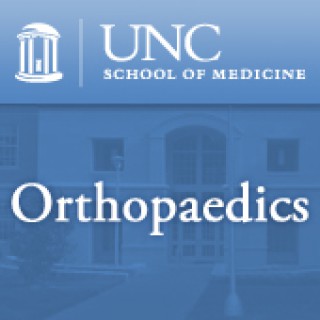
Aging, Disability, and Long-Term Care
Follow Aging, Disability, and Long-Term CareConnecting to Apple Music.
- Apr 25, 2012 LATEST EPISODE
- infrequent NEW EPISODES
- 8m AVG DURATION
- 4 EPISODES
More podcasts from UNC School of Medicine
Latest episodes from Aging, Disability, and Long-Term Care

Feeding problems are common in advanced dementia, triggering decision-making about options of tube feeding, assisted oral feeding, and feeding for comfort only. Shared decision-making is the desired ethical standard for treatment decisions with uncertain benefit, but it is rare for tube feeding. Decision aids provide structured information about a clinical choice, including clear delineation of options, presented with the pros and cons, and guidance for how to make a choice. Content is purposefully balanced and evidence-based. In the Improving Decision Making about Feeding Options in Dementia study, a team of investigators developed and tested a decision aid for surrogate decision-makers for patients with advanced dementia, and found it effective to improve knowledge, reduce decisional conflict and increase communication about feeding options with providers. Please consider this decision aid as one tool that may help family members faced with choices about feeding options in dementia care. The decision aid can be reviewed in preparation for a discussion with the physician or other health care provider caring for the person with advanced dementia, to improve the quality of decision-making. The Improving Decision Making about Feeding Options in Dementia study was funded by the National Institutes of Health: National Institute for Nursing Research R01 NR009826. The funding source had no role in the design and conduct of the research, and does not directly endorse the decision aid.

Feeding problems are common in advanced dementia, triggering decision-making about options of tube feeding, assisted oral feeding, and feeding for comfort only. Shared decision-making is the desired ethical standard for treatment decisions with uncertain benefit, but it is rare for tube feeding. Decision aids provide structured information about a clinical choice, including clear delineation of options, presented with the pros and cons, and guidance for how to make a choice. Content is purposefully balanced and evidence-based. In the Improving Decision Making about Feeding Options in Dementia study, a team of investigators developed and tested a decision aid for surrogate decision-makers for patients with advanced dementia, and found it effective to improve knowledge, reduce decisional conflict and increase communication about feeding options with providers. Please consider this decision aid as one tool that may help family members faced with choices about feeding options in dementia care. The decision aid can be reviewed in preparation for a discussion with the physician or other health care provider caring for the person with advanced dementia, to improve the quality of decision-making. The Improving Decision Making about Feeding Options in Dementia study was funded by the National Institutes of Health: National Institute for Nursing Research R01 NR009826. The funding source had no role in the design and conduct of the research, and does not directly endorse the decision aid.














